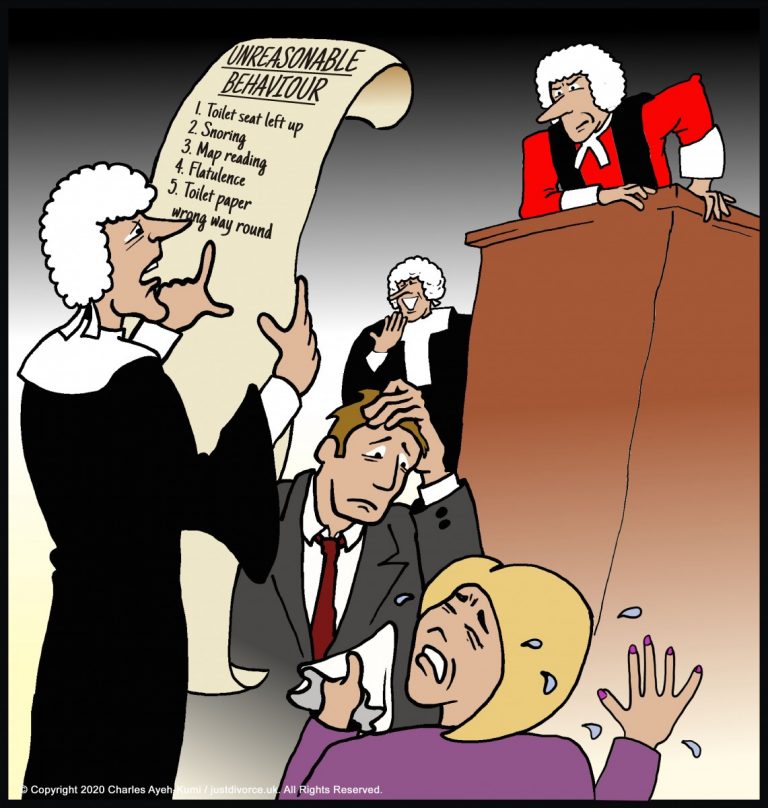
In the Policy paper Looking to the Future, Mediation and the ground for divorce, presented to Parliament in April 1995, the Lord Chancellor at the time, Lord Mackay of Clashfern stated:-
2.15 The Government believes that at least some divorce petitions, possibly many, represent a ‘cry for help’, which may not reflect a seriously thought out decision to end the marriage…..
Extract from “Grounds For Divorce” – Davis and Murch
The sense of sadness and regret in some of these cases was quite palpable. The following example concerns a woman who forced herself to petition for divorce when she discovered that her husband was having an affair and wanted to live with his girlfriend (who by then was pregnant).
“I regrets it [deciding to divorce]. I should never have done it . . . if I’d really worked hard and made it work. . . I forgive him as soon as he told me. I was just doing it [petitioning], hoping it would stop him doing what he was doing. I thought he might see sense and he might stop. I thought by doing that and making him think ‘Crikey, she really means it’ . . . but it was too late then, because she was three-and-a-half months pregnant as well. I was going to cancel it [petition]—! was all set to cancel it because I had no intention of going through—I thought I’d just wake him up.”
We also interviewed the husband in this case and his response to our question
“Would you have preferred to have remained married?’ was,
That’s the sixty-four thousand dollar question. I really don’t know the answer. I suppose if I sat and wrote them down, there’s fifty reasons why I would like to have stayed married. There’s probably another fifty, if I’d thought about it, why probably it was best not to stay married. I think that’s a ‘pass’ on that one actually.”
Considering that our Special Procedure interviews were conducted amongst the divorcing population, we were surprised at how many of our informants also alleged that divorce was ‘too easy’. There was a fairly widespread view that easy access to divorce reduced the incentive to display the tolerance and understanding that all relationships need.
Divorce is made too easy—too accessible; nowadays marriage isn’t worked at as hard as it used to be. Divorce is prevalent for that reason—not because marriages aren’t as good as they were, but because they’re not as important as they were. My parents—they’re now very happy, but they went through problems; today they’d probably have divorced.
(different case) Divorce is too easy. Splitting up is too easy. It’s to do with the whole social development. I believe in the family and the whole supportive kin group. People must be more motivated to sort things out.
(different case) It is easy, too easy. It doesn’t question enough. It doesn’t cause any embarrassment. It gives no room for second thoughts—you think: ‘That’s it, it’s all over.’ Maybe if things were a little harder you would think twice about it.
(different case) What she was basing the divorce on, any partner can do to the other. In a way, divorce in my opinion is so simple and so easy for each person to get, that one partner can turn round and say, ‘I think I’ve had enough of you—I’m gonna divorce you’, and if they weigh up what they have up to that point, you can find half-a-dozen reasons under the grounds of unreasonable behaviour. And quite honestly, they’re frivolous, they’re exaggerated, and they get the divorces so easily, that that’s part of the problem why there are so many divorces in this country. And it’ll get worse because this is the trend of life now. I go round to Solo clubs and I’ve formed the opinion that around this age of forty years they part—they split up, and one says, ‘I’m going to get myself a flat and I’ll live a different life.’ Family’s just beginning to grow up and they’re off their hands. And one partner may not want it—one partner will hang on and hang on, but if one half of the partnership is dogmatic and firm and says, ‘No, no, I’m gonna leave you, we’re finished—they’ll get away with it. There’s nothing to stop a person from getting a divorce if they go to a solicitor and say, ‘I’m after a divorce.‘
Many of those who expressed this point of view had been left by their spouse. As noted in Chapter 3, some men were inclined to believe that the law should step in in order to prevent middle-aged women going off the rails. The problem, as they saw it, was one of lack of control.